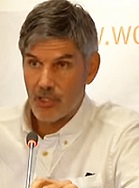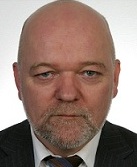Cher visiteur,
veuillez trouver ci-dessous les présentations et les coordonnées des intervenants aux Droits fonciers et de pêche 2015. Prière de noter que les intervenants sont mentionnés par ordre alphabétique et selon les sessions plénières et à micro ouvert. N'hésitez pas à nous contacter ou à contacter les intervenants en cas de question sur leur travail ou sur les Droits fonciers et de pêche 2015.
PLENARY PRESENTATIONS
Dedi S. Adhuri

Dedi Supriadi Adhuri has over 20 years of experience in social research on marine resource management/governance, post disaster coastal/fisheries rehabilitation/ development and community development. In last couple years, he is working on coastal communities’ adaptation to climate change and cultural heritage in Indonesia. Dedi was Graduated from the Dept. Anthropology, Australian National University in Canberra and has attended various fellowship programs in several universities and research institutions abroad. He is currently a senior researcher and the coordinator of the Maritime Study Group at the Research Center for Society and Culture, Indonesian Institute of Sciences in Jakarta.
Presentation: The Awik-awik: Revitalization of Rights-based Fisheries in Jor Bay, East Lombok, Indonesia
Contact: [email protected]
Ragnar Árnason

Ragnar Árnason is a professor at the department of economics at the University of Iceland. Since accepting a chair in fisheries economics in 1989, professor Árnason has primarily conducted his research in fisheries economics, fisheries management and aquaculture economics. In these fields, he has an extensive publication record with over 150 scientific articles and several books to his name. Professor Árnason has been active in formulating his nation’s policy in fisheries management and environmental matters and has provided advice on the same issues to the governments of several countries in Europe, America, Africa and Asia.
Presentation:Rights-Based Approaches to Fishing: Theory and Experiences
Contact: [email protected]
Andrew Baio

Dr. Andrew Baio lectures Fisheries and Environmental Resource Economics at Fourah Bay College, University of Sierra Leone and provides services as a national and international consultant in Natural Resource Economics and Management. Andrew attended Christ the King College (CKC), Bo, Sierra Leone. He furthered his education at Njala University College (BSc); University of Bergen, Norway (MPhil); University of Portsmouth, UK (Postgrad. Dip., PhD). Career objective focuses on sustainable natural resource stewardship.
Presentation: Experimentation with rights-based fisheries in the artisanal fisheries of Sierra Leone
Contact: [email protected]
Wes Erikson

Wes Erikson is an active fourth generation commercial fisherman. He has fished for halibut, herring, salmon, rockfish, lingcod, skate and sablefish using longline, troll, Trawl and gill net along the entire British Columbia coastline (Canadian Pacific coast). Wes has been involved in the fisheries advisory process for over 20 years and has recently been a halibut representative on the Commercial Industry Caucus (CIC) implementing the pilot integrated groundfish strategy. This fishery has received international attention as a model of sustainable, accountable, and responsible fishing practices. Wes has been invited by fishermen and organizations involved in fisheries around the world to describe his fishery and how it was developed by its participants. Wes is also a chef and has owned and operated seafood restaurants from 1993 to 2011.
Presentation: An Evolution of a Commercial Fishery
Contact: [email protected]
Ana Minerva Arce Ibarra

Since 1996, A. Minerva Arce Ibarra is Researcher/Scientist at College of Southern Border (ECOSUR, www.ecosur.mx). She is a former Fishery Biologist who became interested in small-scale fisheries management and got closer to coastal communities and resource users. She completed a PhD in Interdisciplinary Studies at Dalhousie University (2007) and currently, her research focuses on small-scale fisheries, rural livelihoods, interdisciplinary approaches, social-ecological systems, and environmental valuation. From 2000 to 2012, she was member of the Steering Committee of COMPACT-UNDP program (Yucatán Peninsula); and from 1999 to date, he teaches graduate courses in Management of Natural Resources and Ecological Economics at ECOSUR.
Contact: [email protected] or [email protected]
Patricia Jack

Patricia Jack is currently the Vessel Day Scheme Manager at the PNA Office. The PNA Office was set up in 2010 to assist the Parties to the Nauru Agreement to effectively implement the Vessel Day Scheme (VDS). As VDS Manager, she is tasked to ensure effective implementation of the VDS by monitoring of Parties Allowable Efforts (fishing rights) in pursuit of greater economic benefits from the management and development of the tuna fisheries resources with the Parties’ Exclusive Economic Zones. She studied in New Zealand and Australia and did a dissertation on auctions under the VDS. She worked in the National Oceanic Resources Management Authority (NORMA) in the Federated States of Micronesia as NORMA’s Fisheries Economist/Information Specialist for over 10 years before taking on the job as VDS Manager.
Presentation: The PNA Vessel Day Scheme
Contact: [email protected]
Ann Jarrett

Annie Jarrett is the CEO of NPF Industry Pty Ltd, an industry company representing Australia’s Northern Prawn Fishery operators and the Managing Director of Pro-Fish Pty Ltd, a private company specialising in fisheries and eco-system based management. Annie has 30 years’ experience in the catching, marketing and management sectors of the commercial fishing industry, with particular expertise in tropical shrimp fisheries and rights based management. She has served on numerous Boards and panels, and is currently a director of Australia’s Commonwealth Fisheries Association and the Australian Prawn Fisheries Council, an ambassador to the Fisheries Ambassador’s Group of the Prince’s Charities International Sustainability Unit, and a member of the Marine Stewardship Council’s (MSC) Stakeholder Council.
Presentation: User-rights in Australia’s Northern Prawn Fishery (NPF): A Southern Hemisphere, Developed Country Experience
Contact: [email protected]
Kaing Khim

Mrs. Kaing Khim is the Deputy Director General of Fisheries Administration (FiA) of the Ministry of Agriculture, Forestry and Fisheries (MAFF) of Cambodia and responsible for Community Fisheries management and gender. She has 21 years’ experiences in planning, monitoring and evaluation and management of the fisheries sector, with particular expertise in fisheries co-management through Community Fisheries management and development in Cambodia as the form of fisher rights based approach, including gender mainstreaming and the elimination of the worst forms of child labor in the fisheries sector and transboundary fisheries co-management between bordering countries. Khim got a Bachelor degree on Fisheries Science in 1994 from Royal University of Agriculture in Cambodia and obtained a Post Graduated Diploma in Rural Extension and Teaching in 1998 from the International Agriculture College Larenstein, the Netherlands. In 2001, she was graduated Master degree on Rural and Regional Development Planning in the program of Rural Development, Gender and Resources (RDGR) from Asian Institute of Technology (AIT) in Thailand.
Presentation: Cambodia’s Experiences with Rights-based Approaches: Community Fisheries Management
Contact: [email protected]
Christiana Louwa

For over a decade, I have engaged actively and effectively in various decision making processes locally and globally especially to highlight, promote and safeguard the rights and interests of small-scale fishers and fishing communities, indigenous peoples, women, ethnic minorities and the marginalized. The processes include, the Kenyan new constitution (2010), United Nations Permanent Forum for Indigenous Issues (made an intervention or statement and called upon governments to adopt a rights based approach to development for realization of millennium goals and equity in development. I was one of the main speakers in a film by Rebbecca Sommers used as a tool to lobby UN member states to pass the UN Declaration for the rights of Indigenous Peoples and this was passed in (UNDRIP2007) other processes and events include UNFCCC,CBD, ICN2 and FAO Tenure & Fishing rights 2015.
Contact: [email protected]
Paul Macgillivray

Paul Macgillivray is working as a fisheries management specialist/consultant in Canada. He has given a presentation on 'Strategic Governance and legal Issues of Rights Based Approaches - what decisions were made, why, and what is the impact - a community perspective'. More specifically, in his presentation Paul has described the legal nature of fishing rights and the security of tenure that harvest groups have in various fisheries on Canada's Pacific coast. Particular attention has been paid to a recent court decision finding that five First nations each have an aboriginal right to fish for commercial purposes.
Presentation: Strategic Governance and Legal Issues of Rights-based Approaches – A Canadian Experience
Contact: [email protected]
Seth Macinko

Seth Macinko teaches Fisheries Law and Management at the University of Rhode Island (USA) in the Department of Marine Affairs. He opened his presentation with a rebuttal of a previous speaker's suggestion that common property always leads to ruin and private property always leads to stewardship. These ideas have been repudiated, not the least by the financial crash of 2008 and by decades of scholarship debunking Hardin's thesis (which Hardin himself later acknowledged). The fisheries problem is a management problem, not a property problem and legions of people are being misled by a fisheries literature that confuses a tool-- pre-assigned catch-- with an ideology-- private property promotes stewardship. He challenged the promoters of "rights-based" fishing to clarify what rights they were referring to. He also challenged them to explain how the reigning emphasis on private property rights and inviting in investors is in any way consistent with the emphasis on human rights and gender equity that features in the FAO guidelines for small-scale fisheries and the tenure guidelines. He suggested that it is disingenuous to simply replace all previous references to private property rights with "tenure rights" and is merely an example of what he has called "strategically benign rhetoric."
Presentation: A perspective on (rights-based) approaches as a management tool: words - and lives - matter.
Contact: [email protected]
Sherry Pictou

Sherry Pictou has volunteered and worked in various capacities for several Indigenous organizations and in particular, for her home community, the Bear River First Nation, Nova Scotia, Canada. Currently, Sherry is an Interdisciplinary PhD candidate at Dalhousie University and serves as an associate member of the Bay of Fundy Marine Resource Centre and the International Small Scale Fisheries Learning Circles Project. She also continues to serve on the Coordinating Committee for the World Forum of Fisheries Peoples (WFFP) since 2004. The focus of her research is on her community’s learning in interrelated local, national and international contexts of struggle for small scale fishing livelihoods.
Francesca Romano

Francesca Romano is Land tenure officer at FAO. She is responsible for coordinating the work on capacity development in support to the implementation of the Voluntary Guidelines on Responsible Governance of tenure of Land, Forestry and Fisheries, including technical guides, training material and in country advice. Before joining the land tenure team, she served as expert in FAO for 8 years on forest tenure, participatory forestry and community based natural resources management. She gained filed experience in Africa, Asia and Central European countries. She also worked as independent consultant for IUCN, University of British Columbia, consulting companies, and as lectures for Universitá la Sapienza, Rome, on filed related to conservation and protected area management. She holds a University degree in Biology and MSc in Protected landscape management.
Presentation: The Voluntary Guidelines on the Responsible Governance of Tenure, Fisheries and Forests – securing tenure rights in fisheries
Contact: [email protected]
Kristján Skarphéðinsson

Ministry of Industries and innovation: Permanent Secretary from September 1st 2012. Ministry of Industry, Energy and Tourism 1999-2012: Permanent Secretary from 2003: Director for Regional- and Power intensive industry matters 1999-2002. Ministry of Fisheries 1987-1999: Representative for fisheries in the Embassy of Iceland in Brussels 1993-1996. Director from 1997, mainly regarding fishery contracts with other nations. Kristján was representative for the Ministry in OECD Committee on Fisheries meetings, Chief of the Icelandic delegations in FAO Committee on Fisheries (COFI), Director for Iceland in NEAFC Annual Meetings (North East Fisheries Commission) and participate with the Nordic Council of Ministers regarding Fishing Industry. Kristján was representative for Iceland in EFTA work committee regarding trade with fishery products – and was director for a while.
Presentation: Fishing rights in Iceland: the why, the how, the outcomes, the politics…
Contact: [email protected]
OPEN MICROPHONE PRESENTATIONS FRIDAY
Claudio Baigún

Claudio Baigún is a fisheries biologist who earned a fisheries master's degree at Oregon State University (USA) and a PhD at the University of Buenos Aires (Argentina). Currently he has a research position at the National Council of Science and Technology (Argentina) holds also the position of Program Coordinator of Fish and Fisheries Program at Wetlands International (Latin America and the Caribbean Office). His studies areas have covered lake ecology and fisheries, dam impacts and fish passage performances in hydroelectrical and irrigations dams in Argentina and assessment of Neotropical fisheries in large rivers oriented to develop and Ecosystem Approach.
Presentation: TENURE RIGHTS IN LARGE RIVER FISHERIES: PERSPECTIVES AND CHALLENGES
Contact: [email protected]
Jane Njeri Kinya

Jane has vast experience in fisheries management and conservation major highlights Served as Chairman of the National Working Group on Fisheries Management and Water Hyacinth that prepared the Lake Victoria Environmental Management Program Project LVEMP I&II Proposal and Member of the Regional Task force on Fisheries Management, Research and Water Hyacinth Working Group that prioritized areas of regional importance. Under the same program spearheaded development of a Micro –Projects operational manual to guide evaluation of community initiated projects. The aim of micro-projects was to build capacity for problem identification and formulation of intervention measures through project proposal writing. In March 2015, Jane has presented a paper on “Improving Current Management of Lake Victoria Fisheries” at the global forum on rights based approached for fisheries.
Contact: [email protected]
Kwangsuk Oh

Kwangsuk Oh has given a presentation on community based management systems in the Republic of Korea. Please find his biography below.
Director of International Cooperation Division of the Ministry of Oceans and Fisheries(Jan 2015~), Sejong Korea. Director of Fisheries Resources Management Division of the Ministryof Oceans and Fisheries(2013~2014), Sejong Korea. Fisheries Officer of the Fisheries and Aquaculture Department of FAO(2010~2013). Director of Legal and Regulatory Reform Office of the Ministry for Food, Agriculture, Forests and Fisheries(2009~2010). Ph.D Energy and Environmental Policy of the University of Delaware(2003). Master. Marine Policy of the University of Delaware(2000) Bachelor. Public Administration of the Chungbuk National University(1991).
Presentation: Korean’s Fisheries Co-management
Contact: [email protected]
Sony Oum

Sony OUM, currently a Country Coordinator of Non-Timber Forest Products – Exchange Programme (NTFP-EP Cambodia), and as the granted appointment for the 2.1-million Partners for Forestry and Fisheries Programme (PaFF) funded by Swiss Agency for Development and Cooperation (SDC). Mr Oum has a wide range of experiences and knowledge in administration and finance, project management, fundraising, capacity building, protected area/biodiversity management, policy development, land use planning, and social forestry and fisheries devolvement for over 14 years with international NGOs.
Contact: [email protected]
Adam Soliman

Adam Soliman is the director of The Fisheries Law Centre - a not-for-profit research centre with a focus on research, education and advocacy as it relates to fisheries law and regulations. Mr. Soliman is a lawyer and adjunct professor of law and he teaches at the University of of British Columbia in Canada and at Dalian Maritime University in China. Mr. Soliman conducts research on legal and economic issues in fisheries and his research focuses on the effect of fisheries policies on small-scale fisheries. His research is published in both legal journals and trans-disciplinary marine policy journals. Mr. Soliman has been invited as a Visiting Scholar at Harvard Law School in the 2015/2016 academic year. At Harvard, he will facilitate a series of fisheries law seminars and will also conduct research on fisheries governance and design relevant curriculum on fisheries law. Through his work at Harvard, he will aim to raise awareness as to issues limiting access to justice for family and small-scale fishers.
Presentation: Constitutional and Human Rights Vs. Property Rights
Contact: [email protected]

